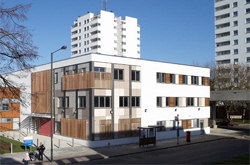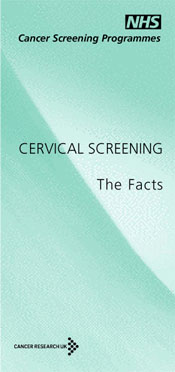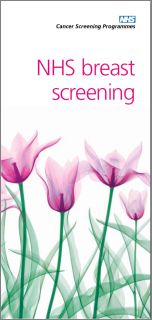


Women over the age of 70 are still eligible to be screened and can arrange this through their GP or local screening unit. The NHS is extending the breast screening age range in England so that by the end of 2012, all women aged 47 to 73 will be invited
The exact causes of breast cancer are not fully understood, but many factors increase the likelihood of developing it, including age and family history of breast cancer.
Women who have a higher-than-average risk of developing breast cancer may be offered screening and genetic testing for the condition. As the risk of breast cancer increases with age, all women aged 50–70 are invited for breast cancer screening every three years. Women over 70 are also entitled to screening and can arrange an appointment through their GP or local screening unit.
Breast Screening
The NHS Breast Screening Programme screens around 1.6 million women a year. Women aged 50 to 70, who are registered with a GP, are automatically invited for screening every three years. You will first be invited for screening between your 50th and 53rd birthday. See Video
Bowel Cancer Screening
Bowel cancer is a general term for cancer that begins in the large bowel. Depending on where the cancer starts, bowel cancer is sometimes called colon cancer or rectal cancer.
Symptoms of bowel cancer include blood in your stools (faeces), an unexplained change in your bowel habits, such as prolonged diarrhoea or constipation, and unexplained weight loss
Cancer can sometimes start in the small bowel (small intestine), but small bowel cancer is much rarer than large bowel cancer. learn more
Cervical Screening
A cervical screening test, or smear test, is a method of detecting abnormal (pre-cancerous) cells in the cervix in order to prevent cervical cancer. The cervix is the entrance to the womb from the vagina.
Cervical screening is not a test for cancer; it is a test to check the health of the cells of the cervix. Most women's test results show that everything is normal, but for 1 in 20 women the test will show some abnormal changes in the cells of the cervix.
Testicular Cancer
Cancer of the testicles, also known as testicular cancer, is one of the less common cancers. It usually affects younger men between the ages of 15 and 44.
The most common symptom is a painless lump or swelling in the testicles. Other symptoms can include:
- a dull ache in the scrotum (the sac of skin that hangs underneath the penis and contains the testicles)
- a feeling of heaviness in the scrotum
- Read more about the symptoms of testicular cancer



Friends of Lakeside [PPG]
Patient Participation at the Lakeside Health Centre











